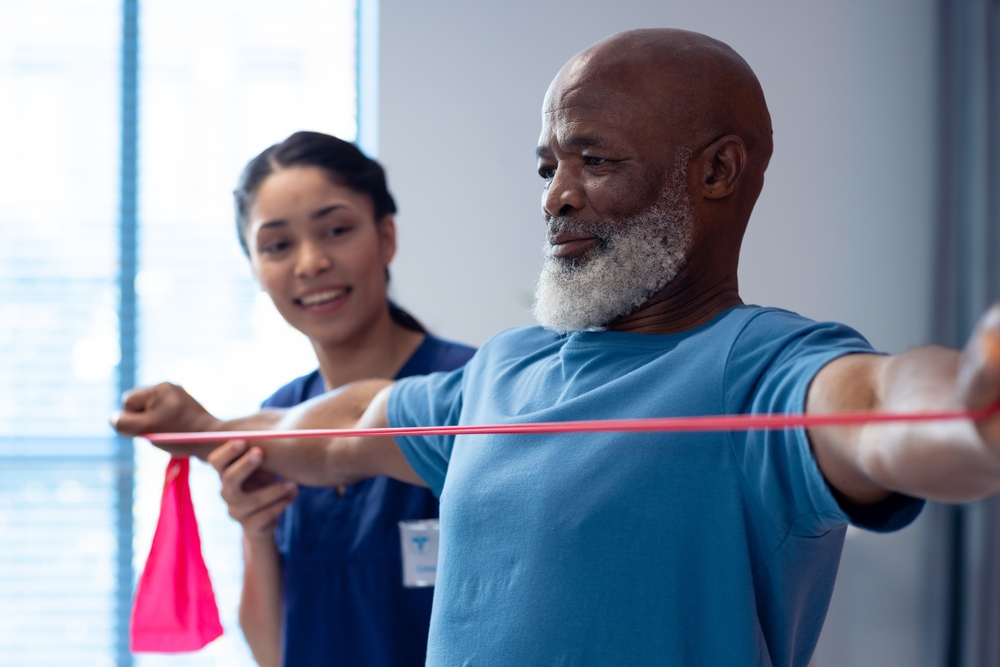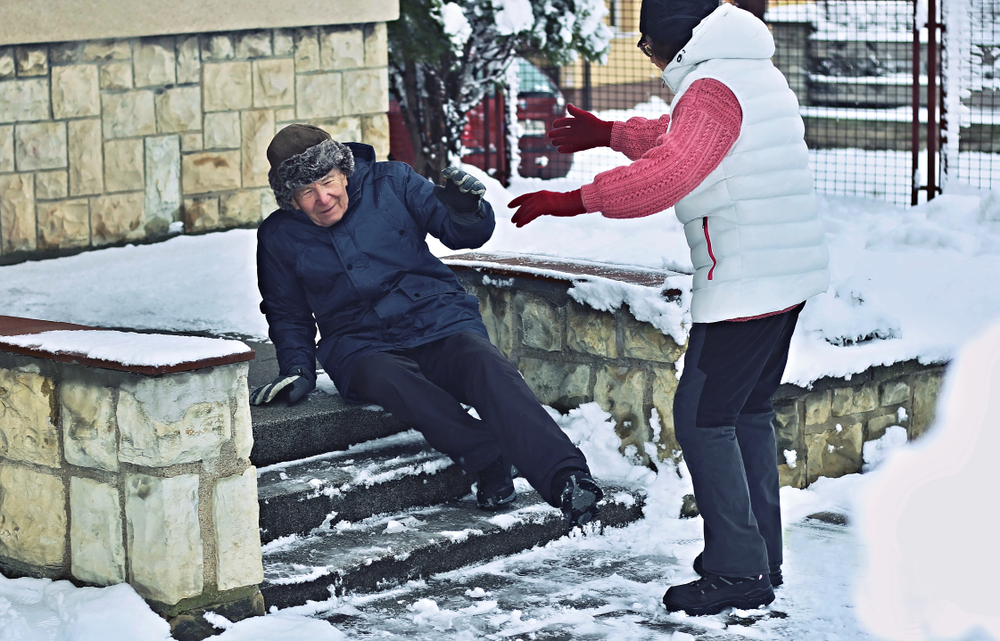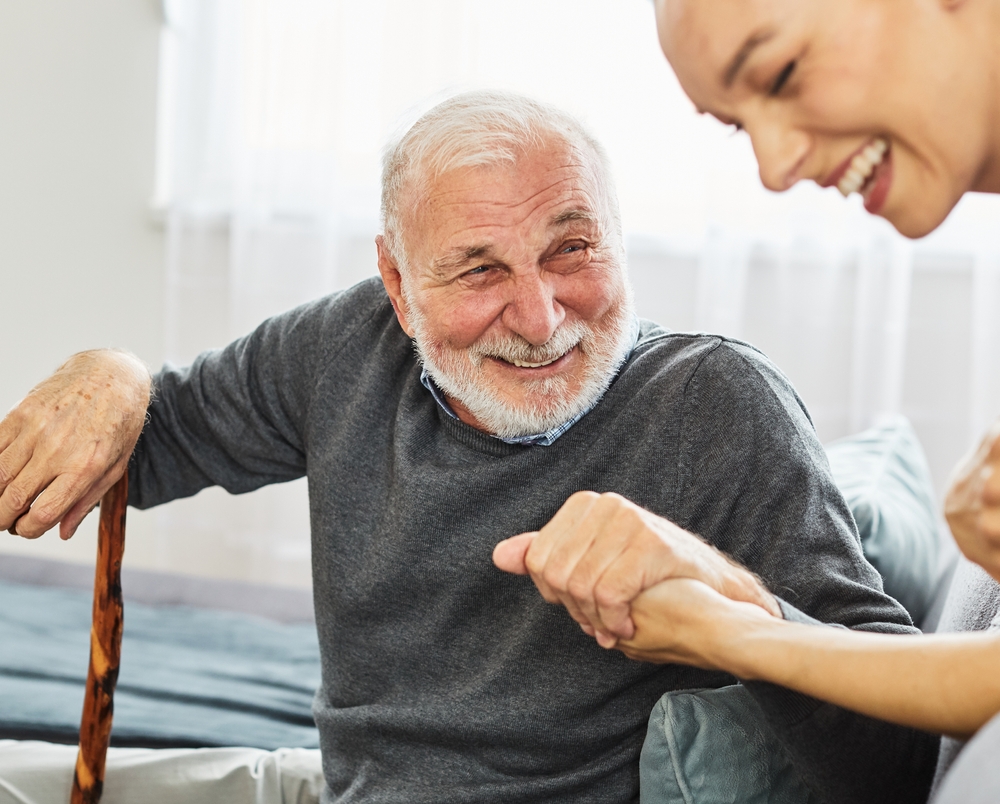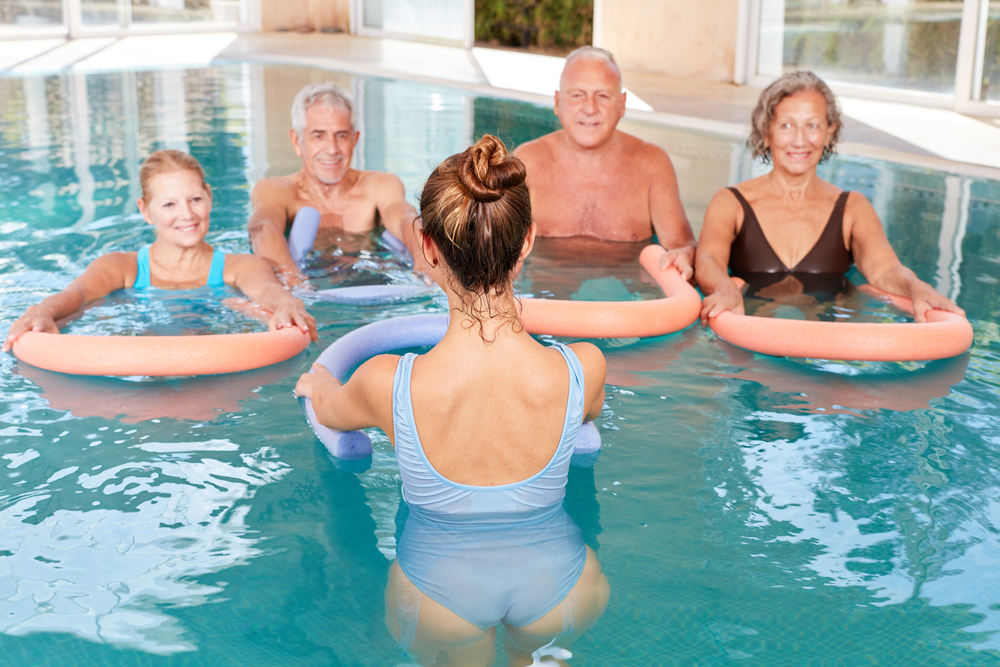Make an Appointment
This blog explores how NDIS-funded physiotherapy plays a critical role in preventing falls, improving strength, and helping people with disability live safely at home and in the community.
Falls are one of the leading causes of injury and loss of independence among Australians with disability. Whether it’s a trip in the hallway, difficulty getting out of bed, or feeling unsteady on stairs, falls can be frightening, and dangerous.
But here’s the good news: most falls are preventable, especially with the right support. And one of the most effective ways to reduce fall risk is through physiotherapy. Physios don’t just help you recover after a fall, they work proactively to improve strength, coordination, mobility, and confidence so you can avoid falls altogether.
For people supported under the NDIS, this type of targeted therapy is not only available, it’s essential. In-home or community-based physio can be tailored to your living space, your goals, and your physical capacity. The benefits go beyond balance, they touch every part of life, from getting out of bed with ease to participating in your local community without fear.
In this article, we explore how NDIS-funded physiotherapy helps clients prevent falls, stay strong, and live life on their own terms.

What Is the Role of Physiotherapy in Falls Prevention?
Physiotherapists are experts in human movement and functional mobility. When it comes to falls prevention, their role is both preventive and restorative, reducing risk while improving strength, balance, and confidence.
Key roles of physiotherapy in falls prevention:
1. Risk Assessment
Physios assess your home environment, balance, mobility, strength, and gait to identify risk factors. These may include:
- Muscle weakness (especially in legs)
- Poor balance or coordination
- History of falls
- Unsafe transfer techniques
- Vision or sensory deficits
- Use of walking aids or assistive equipment
- Fear of falling
2. Individualised Exercise Programs
Using evidence-based frameworks, your physiotherapist creates a tailored plan targeting:
- Leg and core strength
- Dynamic and static balance
- Joint flexibility
- Coordination
- Functional movement (e.g. getting out of a chair)
These exercises are adapted to the person’s current level and environment, often performed safely at home with physio supervision.
3. Equipment and Home Modification Advice
Physios recommend mobility aids (e.g. walkers, rails, orthotics) and suggest modifications to improve safety, like removing tripping hazards or adding bathroom supports.
4. Falls Education and Carer Support
They teach clients and carers how to move safely, reduce fear of falling, and respond if a fall does occur.
Healthdirect – Preventing Falls
Under the NDIS, physiotherapy can be funded to support daily living, improve mobility, and reduce injury risk - all key goals in falls prevention.
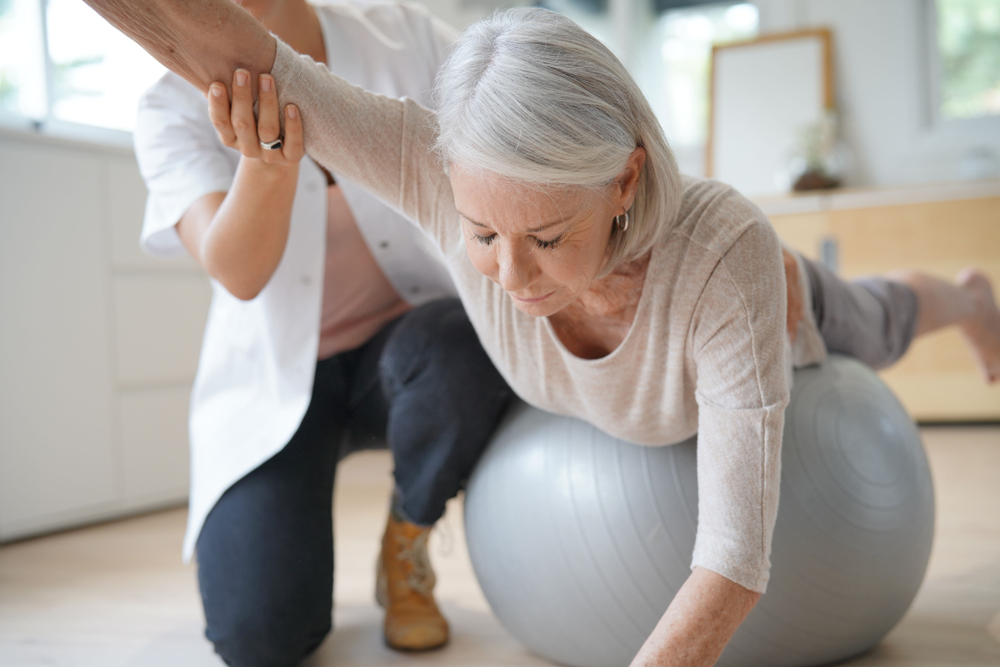
How Can Physical Therapy Help Prevent Falls?
Physiotherapy helps prevent falls by targeting the root causes of instability, like weak muscles, poor posture, slow reflexes, or limited mobility, and systematically improving them.
How physical therapy helps:
1. Strengthening Weak Muscles
Most falls are caused by a failure to recover from a loss of balance. Physios strengthen key muscle groups (particularly the glutes, quads, calves, and core) to create stability when you trip, stumble, or stand.
2. Balance Training
Balance is a learned skill. Your physiotherapist will guide exercises that challenge your vestibular (inner ear), visual, and proprioceptive systems. Examples include:
- Tandem stance and heel-to-toe walking
- Single-leg stands
- Reaching and shifting weight in standing
- Foam pad balance exercises
3. Gait Re-Training
Physios analyse your walking pattern to identify issues like shuffling, limping, or asymmetry. Interventions may include:
- Cueing to improve foot clearance
- Teaching safer turning techniques
- Using walking aids with proper form
4. Functional Movement Practice
Therapy also includes task-based practice - like getting up from a low chair, using stairs, or stepping over obstacles.
5. Fear Reduction and Confidence Building
Fear of falling often leads to avoidance of movement, which increases risk. Physios use graded exposure and positive reinforcement to rebuild trust in your body.
Active and Healthy (NSW Govt) – Falls Prevention Strategy
With consistent support, many NDIS participants dramatically reduce their fall frequency and regain the freedom to move more safely and independently.
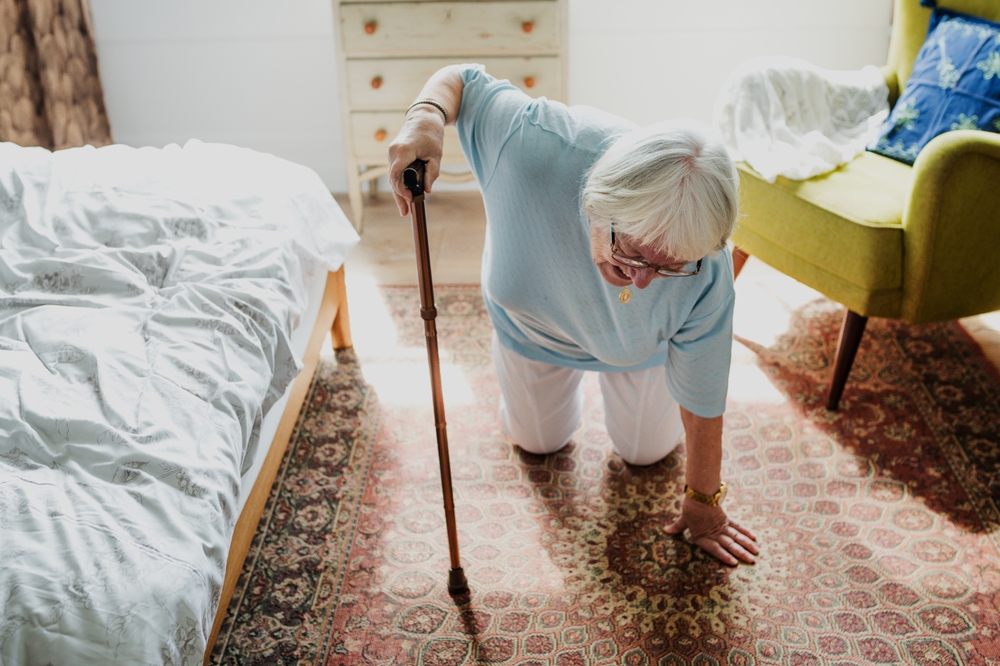
Why Is Fall Prevention So Important?
Falls are more than just bumps and bruises, they can have serious physical, emotional, and financial consequences, especially for people with disability or mobility challenges.
Why it matters:
1. Falls cause injury
According to the Australian Institute of Health and Welfare, falls are the leading cause of injury-related hospitalisation in people aged 65+ and a major cause of injury in younger people with disability. Fractures, head trauma, and soft tissue injuries are common.
2. Falls reduce confidence and independence
After a fall, many people avoid walking, bathing, or socialising due to fear. This can lead to isolation, inactivity, depression, and a decline in overall health.
3. Falls can trigger a chain reaction
A single fall can lead to hospitalisation, loss of independence, the need for higher care, or long-term disability.
4. Falls are largely preventable
Evidence shows that physiotherapy-led strength and balance programs can reduce falls by up to 40%, especially when tailored to individual needs and practiced regularly.
5. Prevention reduces long-term care costs
Avoiding falls lowers hospital admissions, the need for assistive devices, and carer burden, supporting both the individual and the broader healthcare system.
NDIS participants who engage in regular physiotherapy are more likely to remain at home longer, stay active in their community, and maintain a higher quality of life.
AIHW – Falls in Older Australians
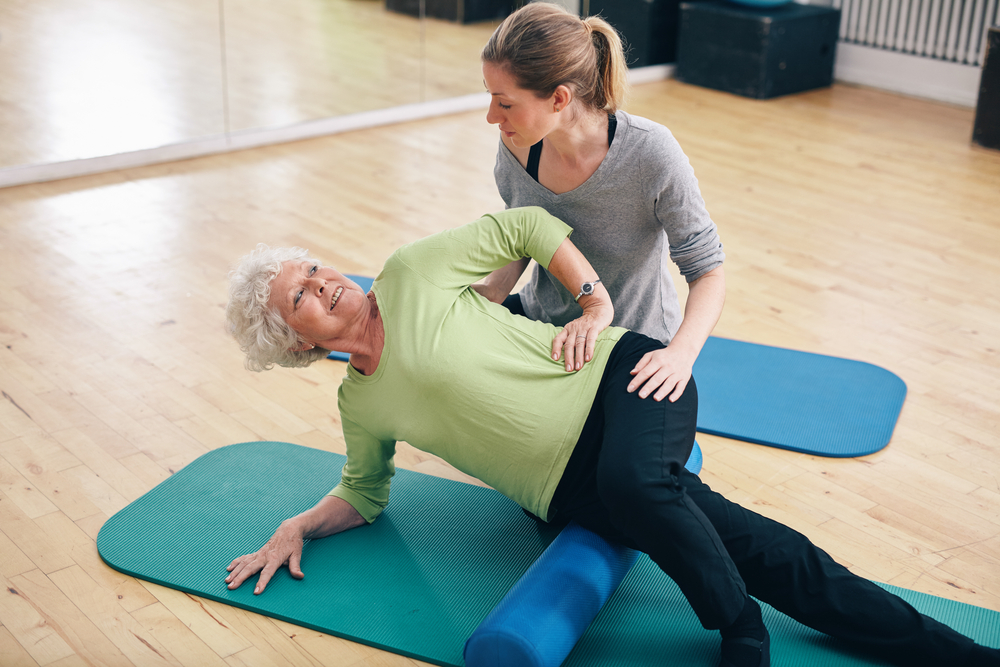
How Does Physiotherapy Improve Balance?
Balance is a complex system that involves your muscles, joints, nervous system, inner ear, and visual cues. Physiotherapy improves balance by training all of these elements together.
How physiotherapy improves balance:
1. Strengthens stabilising muscles
Exercises focus on lower limb and core strength so you can stay upright when shifting weight, reaching, or recovering from missteps.
2. Enhances proprioception
This is your body's ability to sense its position. Balance boards, foam pads, and dynamic movements help retrain your sense of “where you are in space.”
3. Integrates vision and vestibular systems
Exercises like head turns while walking or standing on uneven surfaces challenge your balance systems in a controlled way, improving adaptability.
4. Addresses postural control
Poor posture affects centre of gravity and increases fall risk. Physios teach posture awareness and strategies to maintain upright alignment.
5. Builds multi-tasking ability
Walking while turning your head or talking is a common fall risk. Physios simulate real-life dual-task scenarios to improve cognitive-motor coordination.
Sample balance exercises physios may prescribe:
- Sit-to-stand with varied seat heights
- Marching in place on foam
- Side stepping and backward walking
- Obstacle navigation drills
- Tai Chi-style weight shifts
These exercises are gradually progressed and matched to the participant’s confidence level and physical ability. For those with significant risk, therapists begin with chair-based exercises and slowly build capacity.

Frequently Asked Questions (FAQs)
Does the NDIS fund falls prevention physiotherapy?
Yes. Physiotherapy aimed at improving mobility, strength, and balance is commonly funded under Capacity Building – Improved Daily Living.
Can I get physio at home if I have trouble leaving the house?
Yes. Mobile physios come to your home, assess your space, and deliver exercises tailored to your needs and environment.
What if I’ve already had a fall - can physio still help?
Absolutely. Falls prevention is both preventive and rehabilitative. Physios can help you recover, build confidence, and reduce future risk.
Do I need a referral?
No. You can self-refer to a provider like Physio Inq or ask your support coordinator to help set it up.
Are balance problems normal with age or disability?
They’re common - but not inevitable. With the right supports, most people can improve balance and reduce risk at any age or ability level.
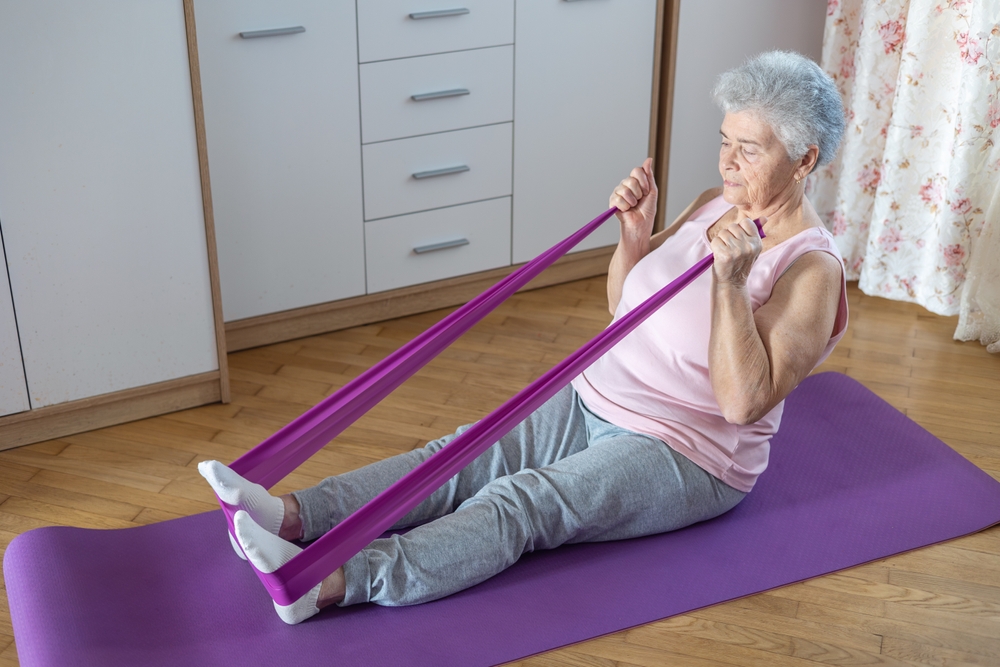
Final thoughts
Falls prevention is about protecting independence, dignity, and quality of life.
Physiotherapy gives you the tools to stay upright, stay strong, and keep moving safely. For NDIS participants, it’s not a luxury, it’s a must-have.
Whether you’ve already had a fall or just want to stay active and confident in your home, mobile physiotherapy offers practical, proven support, tailored to your body and your goals.
Contact Us
Call 1300 731 733 or book online for professional, NDIS-funded physiotherapy that helps prevent falls and build strength at home.
You can also:
- Browse more NDIS support articles
- Explore our Mobile Physiotherapy services
- Ask your support coordinator about falls prevention therapy
- Request a tailored service agreement with your fall risk goals included
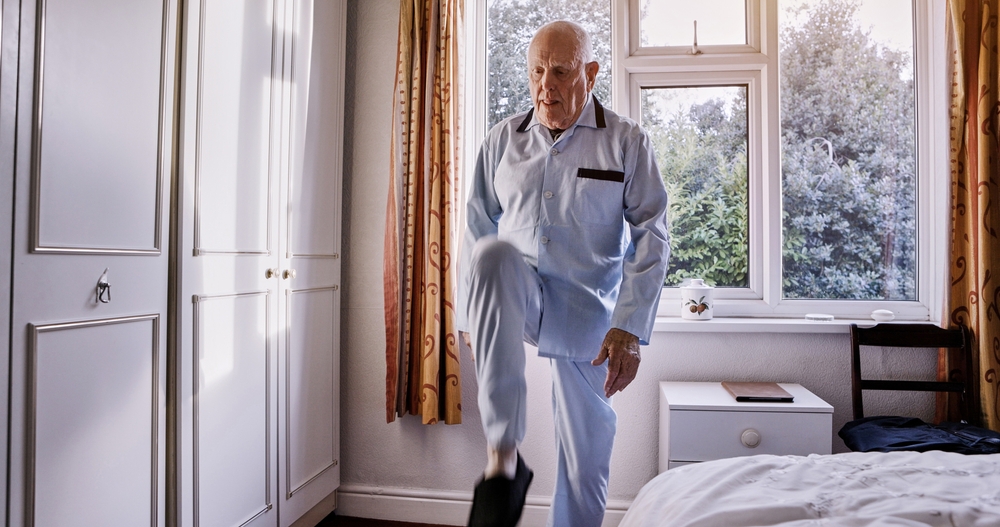
Date Published: Thursday, June 26, 2025
Locate a Aged Care Physiotherapy
Service Near me
Get the experience & convinence you deserve to support your or a loved one's allied health needs.
Our Aged Care Physiotherapy team are currently serving & taking appointments in the following states and regions in Australia:
Need to get into direct contact with ur Client Services team? We're all ears. Call our team directly on 1300 731 733
